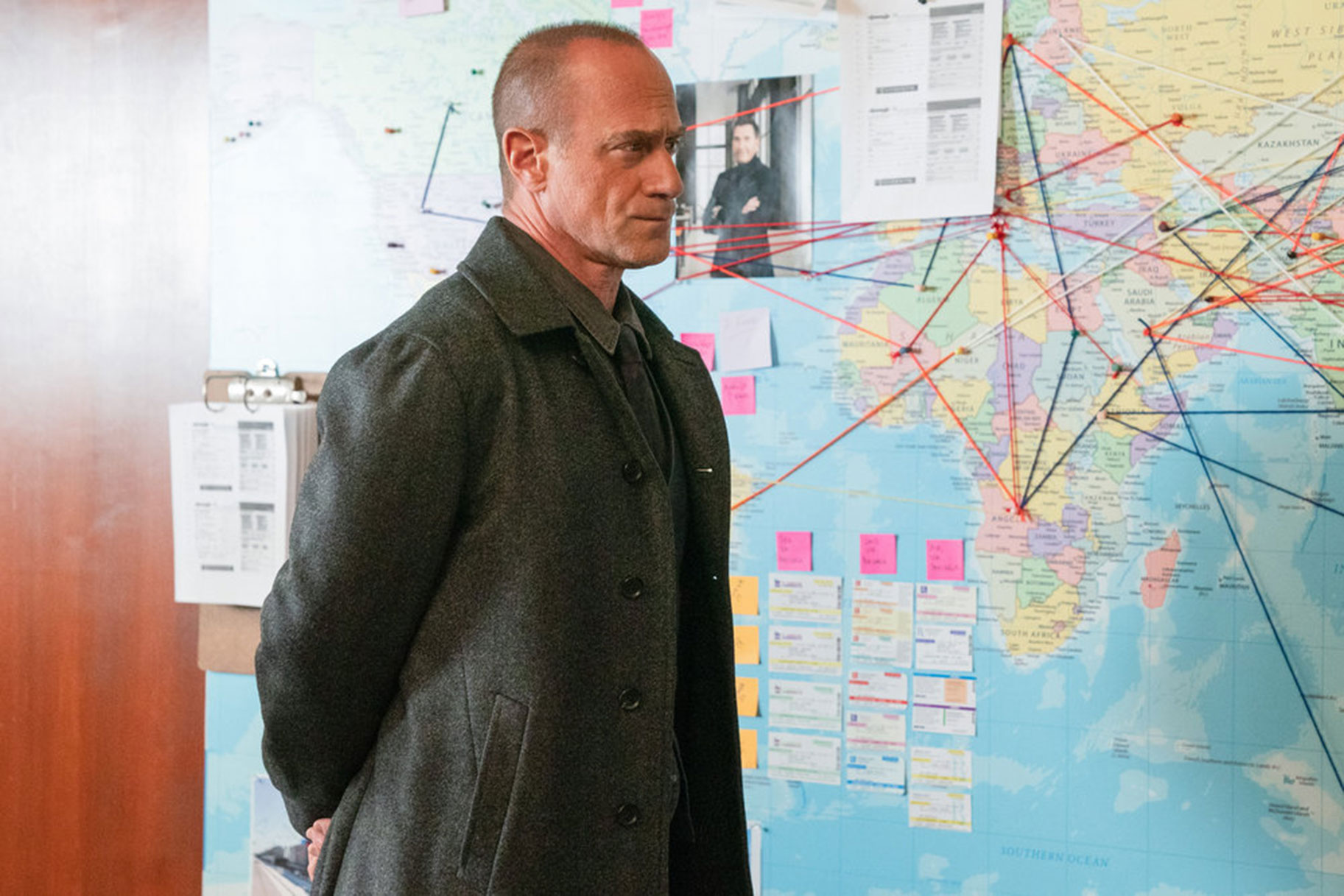Create a free profile to get unlimited access to exclusive videos, breaking news, sweepstakes, and more!
Does the NYPD Have An International Operation As Mentioned On 'Law & Order: Organized Crime'
When Elliot Stabler returned to the hit franchise this week, he revealed he’d been working for the NYPD abroad, in a program that has existed in reality since the aftermath of the 9/11 attacks.

The long-awaited return of one of the television’s most iconic characters came Thursday night with NBC’s premiere of its new series, “Law & Order: Organized Crime,” starring Christopher Meloni as the intense and uncompromising NYPD Det. Elliot Stabler. The actor and former “Law & Order: Special Victims Unit” character abruptly left the show and its tight-knit elite squad in 2011, leaving his partners, and audiences, wondering what happened to the fan-favorite detective.
(Spoilers below)
In Thursday’s episode of “Law & Order: Special Victims Unit,” Stabler is discovered at the scene of a car bombing by his former partner, Det. Olivia Benson (Mariska Hargitay) that tragically ends up killing his wife, Kathy. Reunited with his former squad after a decade, Stabler reveals he’s been working for the New York Police Department in Rome on anti-terrorism, human trafficking and organized crime, leading in to the new entry into the franchise.
This begs the question: Does the NYPD, one of the largest police forces in the world, actually have this sort of international operation?
The answer is yes — in fact, the department’s International Liaison Program has 14 intelligence posts outside the U.S. This includes operations and detectives in London, Paris, Madrid, Tel Aviv, Amman, Doha, Abu Dhabi, Singapore, Sydney, Interpol in Leon and Europol in The Hague. There, New York detectives are embedded with local law enforcement agencies to gather information and prevent crime.
Launched in 2003 in the aftermath of the 9/11 attacks by former NYPD Commissioner Ray Kelly, the ILP costs about $1 million annually and is funded by private donations from the New York City Police Foundation. That foundation is a nonprofit so, controversially, is not required by law to disclose the identities of its donors. Ivanka Trump, Goldman Sachs, and Purdue Pharma have given to the foundation over the years.
Also, notably, the United Arab Emirates gave $1 million to the foundation in 2012, according to a document obtained by The Intercept. The NYPD denied to the outlet that the UAE funds were used for the Intelligence Division, however, saying it was an “unrestricted gift to the General Fund” used to upgrade equipment and facilities in the city. The UAE was the only foreign government to donate money to the organization, its president confirmed in 2018 to the New York Times.
Kelly’s successors, William Bratton and James O’Neill, expanded the program and number of international posts during their tenures. The ILP’s initial mission in its early years, when the U.S. was focused on the “war on terrorism,” was to gather information on terror-related activities — tactics, names of suspects, possible connections to the city, and other details like those of homemade bombs, as the Times reported.
Gradually, this has leaned more towards other types of crimes — tracking watches stolen in Manhattan to a Jordan pawnshop, for example, as well as domestic lone-wolf attacks, like the 2018 truck attack that killed eight in downtown Manhattan and tracking down a Bronx man accused of providing material support to ISIL the previous year.
"There were three terrorist attacks in the 18-month period in New York City between 2017 and 2018," John Miller, the deputy commissioner for intelligence and counterterrorism, told CBS News’ Pamela Falk in 2019. "The model of low-tech, low-cost, high-impact attacks driven by the social media messaging of terrorist groups is what we are seeing and what our partners in London, Paris and the larger European Union are seeing as well."
According to the NYPD website, the program these days is focused on “providing situational awareness” and “exchanging best practices” with local agencies abroad to coordinate with the department back home to, as Miller says on the Police Foundation’s website, “react in New York City in real-time.”
Perhaps future episodes of "Law and Order: Organized Crime" will delve deeper into those international relationships. Watch the series Thursdays at 10/9c on NBC.


























